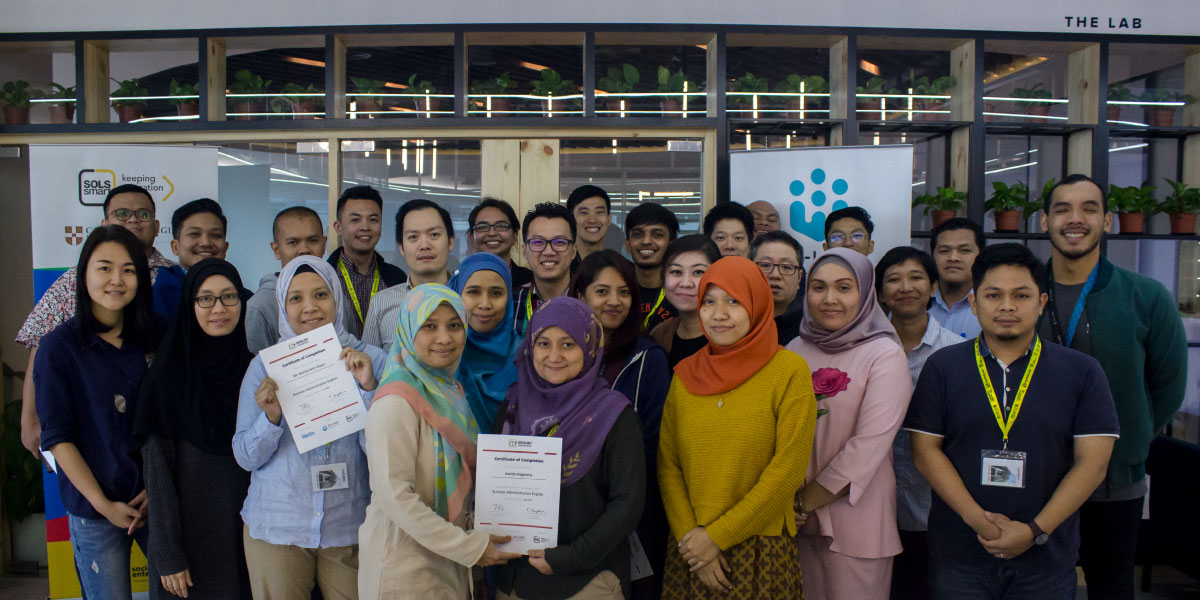If you are reading this and English is not your mother tongue or first language, we have some amazing news for you.
Just like many Malaysians out there, you are also bilingual or trilingual! Although the importance of English is getting a lot of attention today, Malaysia still remains a multilingual country made up of many native languages like Malay, Tamil, Mandarin, Telugu, Hokkien, Iban, Kadazandusun and many others. Let us guess, by now you can probably speak in a blend of 2 or 3 languages, right?
So if you are new to learning English, consider this: your mother tongue or first language (L1) might just be the key to improving your English skills!
Recent research has shown that bilingual speakers are more likely to learn a language better using their mother-tongue fluency. That means, the better you are with your L1, the better you progress in English. Can’t believe it?
Jump in to discover how your mother tongue can help you learn English better!
It Helps to Develop Your Second Language Fluency
Do you feel that not having English as your first language is a disadvantage for you? Don’t worry, it’s not. In fact, it’s the opposite! Learning your mother tongue has become an asset to learning English today.
 Photo Credits: Leonardo Toshiro Okubo via Unsplash
Photo Credits: Leonardo Toshiro Okubo via Unsplash
If we look back to fifty years ago, the priority to learn the mother tongue began to decline. People believed that learning the mother tongue will be an obstacle for children to learn English. Although the current generation grew up learning English as their first language (L1), in many parts of the world, English is being taught as a second language (ESL) including Malaysia.
So if you are fluent in your native language, what can you do?
Treat your mother tongue with the deepest appreciation. It is best to keep up with your mother tongue fluency because this increases your intuitive sense when it comes to speaking English. Do you know, bilinguals are able to interpret meanings better than monolinguals? This is an added advantage for you.
So, develop your mother tongue as much as you can. Don’t ignore it. This is so that you can begin to understand how to excel at English sooner than you think!
 Photo Credits: Reid via Flickr.
Photo Credits: Reid via Flickr.
It Stimulates Creativity in Reading and Listening in English
Fun fact: Did you know that all 7 books of the Harry Potter series have been translated into 80 different languages?
That’s right. Thanks to the power of translation, we are able to read and hear the same story, news, songs, speeches, movies in multiple languages! This is a new possibility for bilingual learners. You now have the opportunity to read the same text in the languages you know. Isn’t that exciting?
Although we admit that it is a little time-consuming, it is still an extremely rewarding process. You are able to understand the context of your second language or ESL much better after you have read the same books in your mother tongue.
So again, we are back to the basics. By having a strong foundation in your native language, it would probably be easier for you to start reading in English more efficiently.
Try this: Select any article and first read it in your mother tongue and then in English. You will be able to pay more attention to the vocabulary, sentence structures, and punctuation this way. The same also applies to increase your listening skills.
Knowing your mother tongue gives you this flexibility.
To make it easy, download apps like our very own SOLS edu to use your first language abilities to enhance your English learning.
Immerse Better in an English Language Environment with Other Bilinguals
Chances are when you learned to speak, listen and probably read in your mother tongue, you did it informally. That means it happened through what we call language immersion. By interacting with the people, culture, lifestyle that shared your mother tongue, you began to understand and adapt to learning it in the most natural way. Research shows that immersive learning is extremely beneficial for bilingual learners, especially when it comes to learning English.
 Photo Credits: Trung Thanh via Unsplash
Photo Credits: Trung Thanh via Unsplash
Since immersive learning happened with your mother tongue, you may already have a familiarity with it. This outside-of-classroom experience can be useful for you when it comes to improving your English skills even more.
In a study done in 2018, bilinguals were found to have higher social flexibility than monolinguals when it comes to immersing in another culture. We recently covered how to improve your English at home, so now it’s time to go outside! All you need is another bilingual friend or relative to help you introduce more bilingual speakers to connect and engage in conversations with you in English.
Get ready to socialise!
 Photo Credits: Nancy Brown via Flickr
Photo Credits: Nancy Brown via Flickr
It Increases Your Cognitive Abilities
Do you know monolinguals have a higher percentage of developing dementia, especially with the older populations? It is not surprising. When you have learned your mother tongue and are trying to learn a new language like English, there is an increase in grey matter density that boosts your memory power and sensory perceptions. New neuron pathways are activated in your brain as you continue to learn English and this only gets better with time.
Having a stable foundation in your mother tongue makes it easier for your brain to process a new language the moment you start learning. This is the reason why bilinguals are least likely to have dementia.
This is a suitable time for you to expand your English vocabulary skills, don’t you think? Do it for your brain health. We have looked at the game Scrabble before but now it’s time to take it one step higher.
Crossword puzzles!
It serves as a healthy tonic for your brain to learn English effectively. Not only is it engaging, but it also makes you think hard and learn new English words by only stating the meanings first! Word games like these make learning English or any other language worthwhile and long-lasting. So, try an online crossword puzzle and practice on a daily basis.
Get started now!
So you see, there are many ways our mother tongue fluency facilitates our English language learning. To those who believe that having a strong base in their mother tongue can negatively affect how they learn English, this article might be your first step to let go of that belief. As English is the most important language of communication and technology, we have to find ways to learn it proactively.
It is not impossible. Start learning English using your mother tongue skills today and become a successful, proficient bilingual!
 Photo Credits: Emma Matthews Digital Content Production via Unsplash
Photo Credits: Emma Matthews Digital Content Production via Unsplash
Want to know if our award-winning English programmes can help you or your organisation?
CONTACT US




